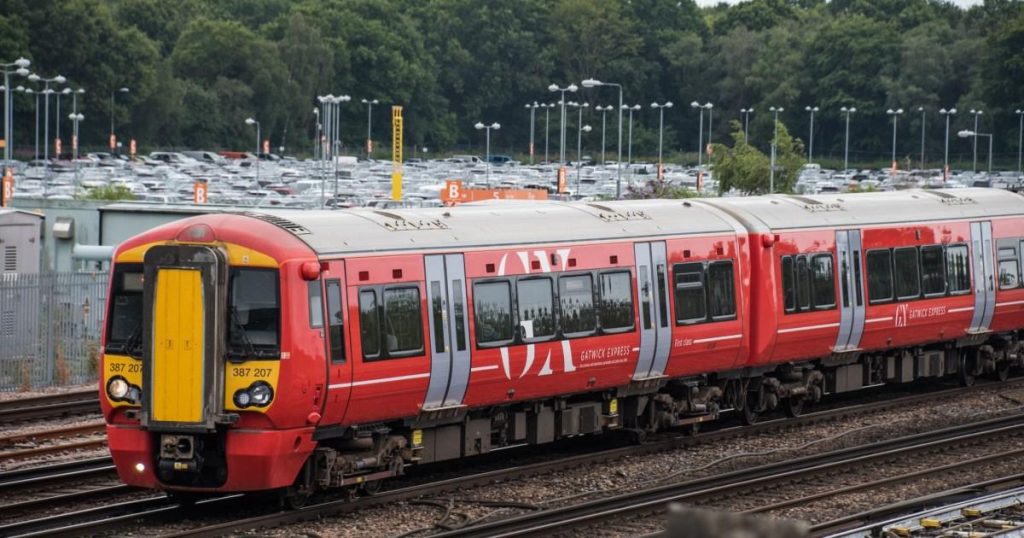Gatwick Train Disruptions & M25 Traffic Congestion: A Morning Travel Challenge for Commuters
A signalling failure between Burgess Hill and Three Bridges has disrupted morning train services to Gatwick Airport, causing delays of up to 20 minutes for travelers. This issue has affected several key routes, including the Gatwick Express between Brighton and London Victoria, Southern services between Ore, Hastings, Eastbourne, Littlehampton and London Victoria, and Thameslink services between Brighton and Bedford and Cambridge. The disruptions are expected to persist until approximately 10 am, impacting commuters and airport-bound passengers. Concurrently, motorists on the M25 are facing heavy traffic clockwise near the Darenth Interchange, adding to the morning’s travel woes.
The signalling failure, a common culprit in railway disruptions, effectively disrupts the communication system that controls train movements. This necessitates a slower, more cautious approach to operations, resulting in delays and potential schedule adjustments. The affected routes serve a significant volume of passengers, including those travelling to and from Gatwick Airport, one of London’s busiest international airports. Consequently, the delays have a ripple effect, impacting connecting services and potentially causing missed flights or other appointments. Train operating companies are working to resolve the signalling issue and restore normal service as quickly as possible, but passengers are advised to check for updates and allow extra time for their journeys.
The confluence of train disruptions and motorway congestion presents a challenging scenario for commuters attempting to reach their destinations. The M25, a major orbital motorway around London, frequently experiences heavy traffic, particularly during peak hours. The current congestion near the Darenth Interchange exacerbates the situation, further impeding travel and potentially adding to journey times. This combination of factors underscores the vulnerability of transportation networks to unforeseen events and the impact such disruptions can have on individuals and the economy.
The incident serves as a reminder of the importance of robust infrastructure maintenance and the need for effective communication during service disruptions. Train operating companies have a responsibility to inform passengers of delays and alternative travel options promptly and accurately. Similarly, highway authorities should provide real-time traffic updates and guidance to drivers, enabling them to make informed decisions and minimize disruption. Investing in resilient infrastructure and developing contingency plans can help mitigate the impact of future incidents and ensure a smoother travel experience.
Beyond the immediate frustration caused by the delays, the incident highlights the broader challenges facing transportation networks in a rapidly evolving world. Increasing demand, aging infrastructure, and the need for sustainable solutions require a concerted effort from governments, transport operators, and technology providers. Investing in innovative technologies, such as advanced signalling systems and smart motorway management, can enhance efficiency, reliability, and safety. Furthermore, promoting sustainable transport options, such as cycling, walking, and public transport, can reduce congestion and minimize the environmental impact of travel.
As the morning progresses, the impact of the train delays and traffic congestion will gradually diminish. However, the incident underscores the interconnectedness of transportation systems and the importance of proactive measures to minimize disruption. By investing in robust infrastructure, implementing efficient communication strategies, and embracing innovative technologies, we can create a more resilient and sustainable transportation network that meets the needs of a growing population. In the meantime, passengers and drivers are urged to exercise patience, check for updates, and plan their journeys accordingly, acknowledging the unforeseen challenges that can arise in the modern transportation landscape.











